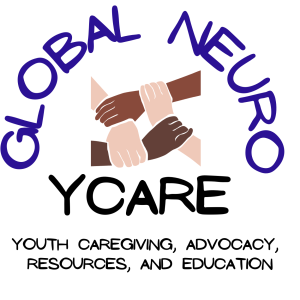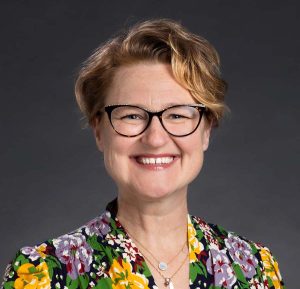Home > Support for children and young people
Support for Children and Young people
We are here to support everyone affected by a motor neuron disease (MND) diagnosis.
Understanding the impact of an MND diagnosis is difficult as an adult, so imagine what it would be like as a child or young person. Around 450 people are living with MND in Scotland, so children and young people may not find support among their peers.
Below you will find resources to help support children and young people. We suggest that you review this information before sharing with children and young people and offer support while reading or watching the content.
Real kids talk about MND
Research shows that children and young people need more support when dealing with a grown up that has a diagnosis of MND and the impact that diagnosis has on them.
We are working closely with organisations to gather best practice and the most appropriate way to help our children and young people.

One of these tools is a graphic novel, Real kids talk about MND, using interviews with real children living in families with ALS/MND, that has been adapted for a Scottish audience.
Children and young people around the world want to know more about MND, including how to talk to friends and family, and what does death and dying mean. Parents need the same support, including how and when to talk about MND. Real kids talk about MND addresses these questions head-on, providing an opportunity for children and young people to explore MND. This resource is suitable for children aged 7-11, however every child is different so we suggest you review this content in advance to asses its suitability for your child.
We are extremely grateful to Dr Melinda S. Kavanaugh for making this graphic novel available to MND Scotland. Dr Kavanaugh is a licensed clinical social worker and professor of social work. She conducts research with U.S. and international organisations to develop evidence based supportive and educational programmes for young caregivers and their families.
To request a copy of the graphic novel email support@mndscotland.org.uk or click the button bellow.
LUKi and the Lights
A new film called LUKi and the Lights is now available on the Global Neuro YCare website.
When Anjo Snijders was diagnosed with a form of MND aged 35, he and his wife, Sascha, wanted to explain MND to their young kids in a way that was accessible, fun and thoughtful. Both teachers, Anjo and Sascha began to look for resources to help explain MND to their children.
In the absence of anything helpful, they created LUKi, in partnership with Dr. Kavanaugh and Global Neuro YCare.
LUKi & the Lights is a silent film – using no language, only sound, to tell the story of LUKi and MND so it is accessible to viewers around the world.

Meet Dr. Melinda S.
Kavanaugh, founder of Global Neuro YCare
Can you tell us about your background in social work and MND?
I am a licensed clinical social worker, with clinical expertise in neurology. I have a PhD in social welfare and am a professor of social work at the university of Wisconsin – Milwaukee in the United States. I am also the president and founder of Global Neuro YCare, a global foundation supporting children, youth and families living with neurological disorders.
What inspired you to help children and young people impacted by MND?
Almost 25 years ago, as a clinical social worker in a neurology clinic, I did a home visit to a family living with Huntington’s disease. When I met with the 10-year-old in the home, he told me he was learning to disinfect his fathers feeding tube, which he was glad to know. But was worried because he didn’t know enough about what Huntington’s’ was – and wasn’t sure how to help care for his dad because he didn’t know what to expect. That was my moment – it changed how I saw not only my practice with families, but it focused me in on getting the training and PhD to conduct research, informing programs and supports for kids in these families.
What is the ethos behind the material you create for children and young people?
The knowledge that children and youth see the disease, they see the care and they are deeply involved in that care. Yet, many families struggle with what to say and how to say it. The lack of discussion or sharing about the disease, disease progression, and care needs is stressful for the entire family. But for the youth, they have few outlets. Creating materials provides the support and outlet they need, but also helps the family as a whole.
How has the material helped children and young people? Can you give specific feedback or examples?
YCare program – We have conducted the YCare, caregiving skills, education and support program across the U.S. and South Africa. At one location in the U.S., a youth who participated was so impacted by it, not only did he press to do it again for other youth in his community, but he created an entire presentation about the program for his school, presenting to a full auditorium – teaching them about ALS/MND, the YCare program and how it helped him deal with his grandfather’s ALS.
After a different YCare program, I received an email from a mum, telling me she saw a clear change in her child after attending. The youth was more confident, more open about ALS/MND and being a young carer.
The guide for parents has been used in many adult caregiver support groups – each section taken as a monthly topic helping the parents and grandparents structure conversations with their youth, according to developmental stage and age. Each chapter can be a stand alone topic.
Graphic novel – to date, the graphic novel is in school libraries in locations around the U.S. Youth can check it out, or photocopy sections. It is easy to access and fun, so they don’t feel like they are getting a “serious” or “self-help” book.
The graphic novel has been translated to 10 languages/cultures. It has been handed out to families around the world, often the only resource for children available in their language.
Why do you think the resources work across different cultures and countries?
ALS/MND is global. Regardless of where you live, it still affects families in similar ways. Thus, the stories of the youth, the research behind the books – they are universal themes: disease, fear, love, loss, grief, caregiving. Our foundation’s commitment is to make sure everything is translated not only language, but also culture. Even with the universal themes, there are nuances in each area/ethnicity/language/culture – which we address.
How do you work with your networks across the globe and how does that support the development of resources?
As a global non-profit charity, donations are our main source of funding for the work we do. But we also work with organizations to write grants that support the collaborative work – allowing for all organization to receive some funding, and everyone can share in the project. That is the key to our mission – collaboration. When we connect with an organization, we ask what they need, and how we can work together to make it happen.
Do you have plans to create any further resources?
Yes! We have two collaborative projects with ALS Canada, 1) translating and including YCare in French, 2) a resource for how to talk to children and families about genetics.
We are also in the process of creating an educational program for health care professionals – guiding them in how to help families talk to their children about ALS/MND. This is an extension of the “Breaking the News” program, developed by myself, Dr. Angela Genge, Dr. Colleen O’Connell, Cathy Cummings and the International Alliance
We are always open to new ideas and collaborations!!